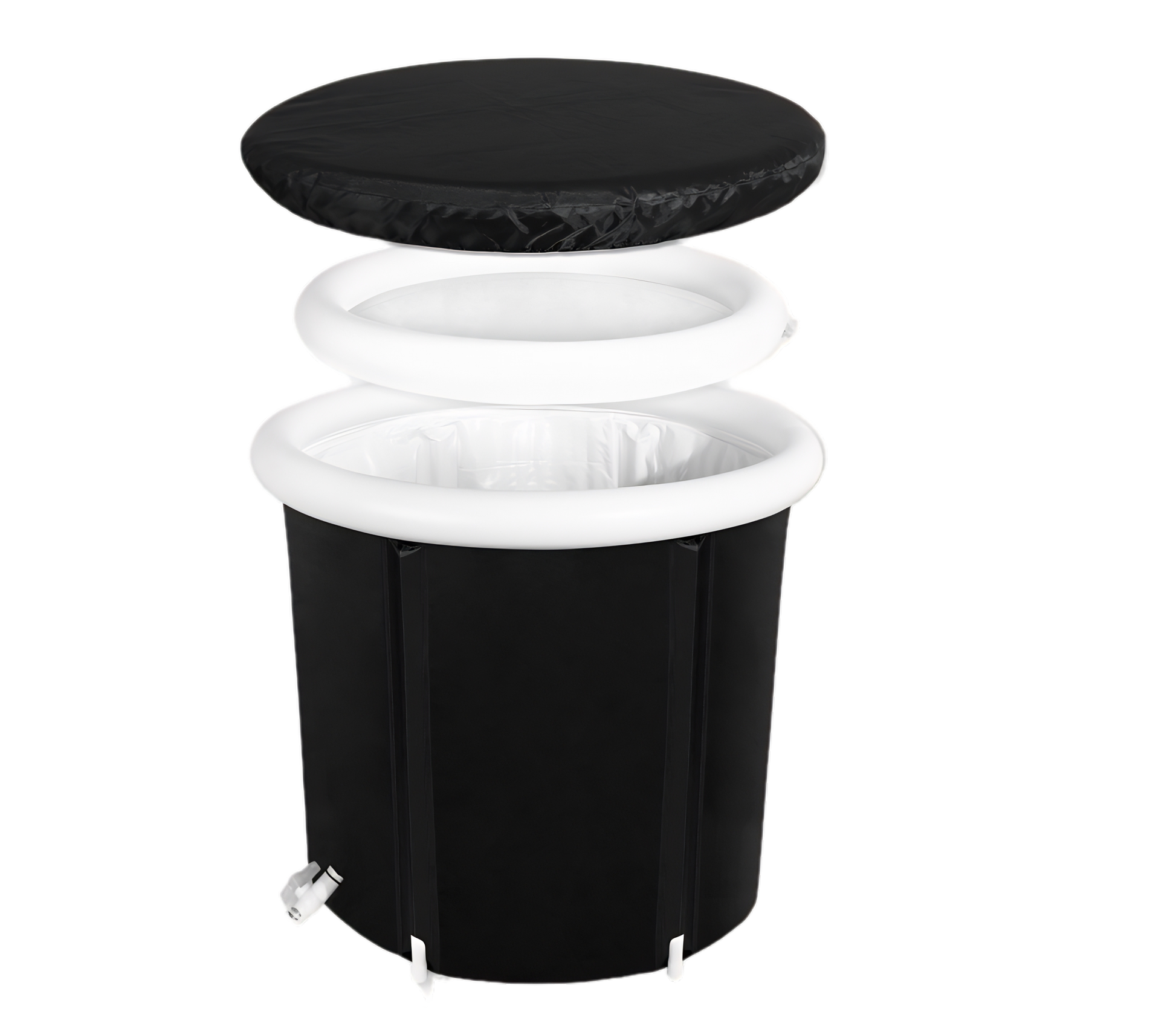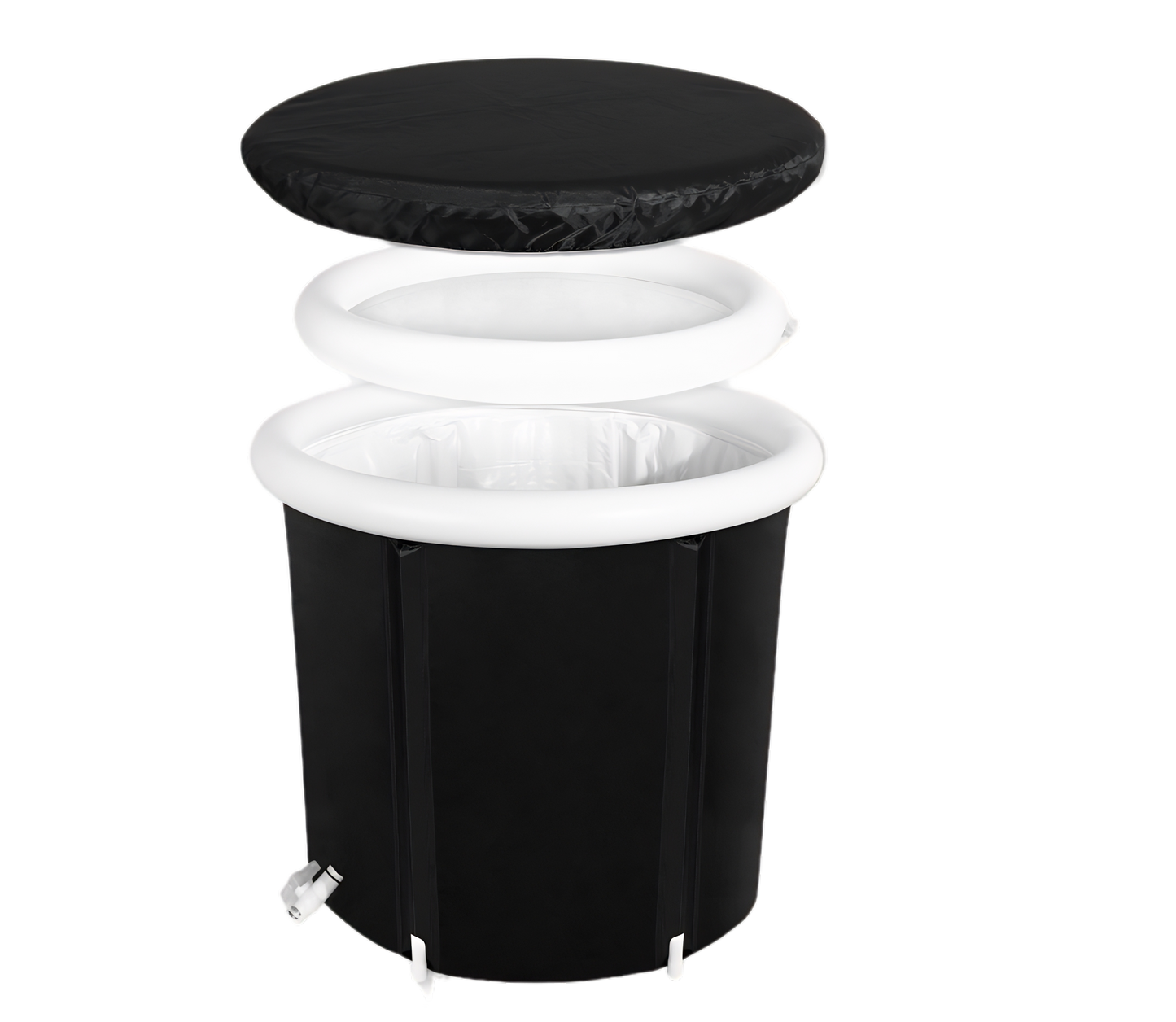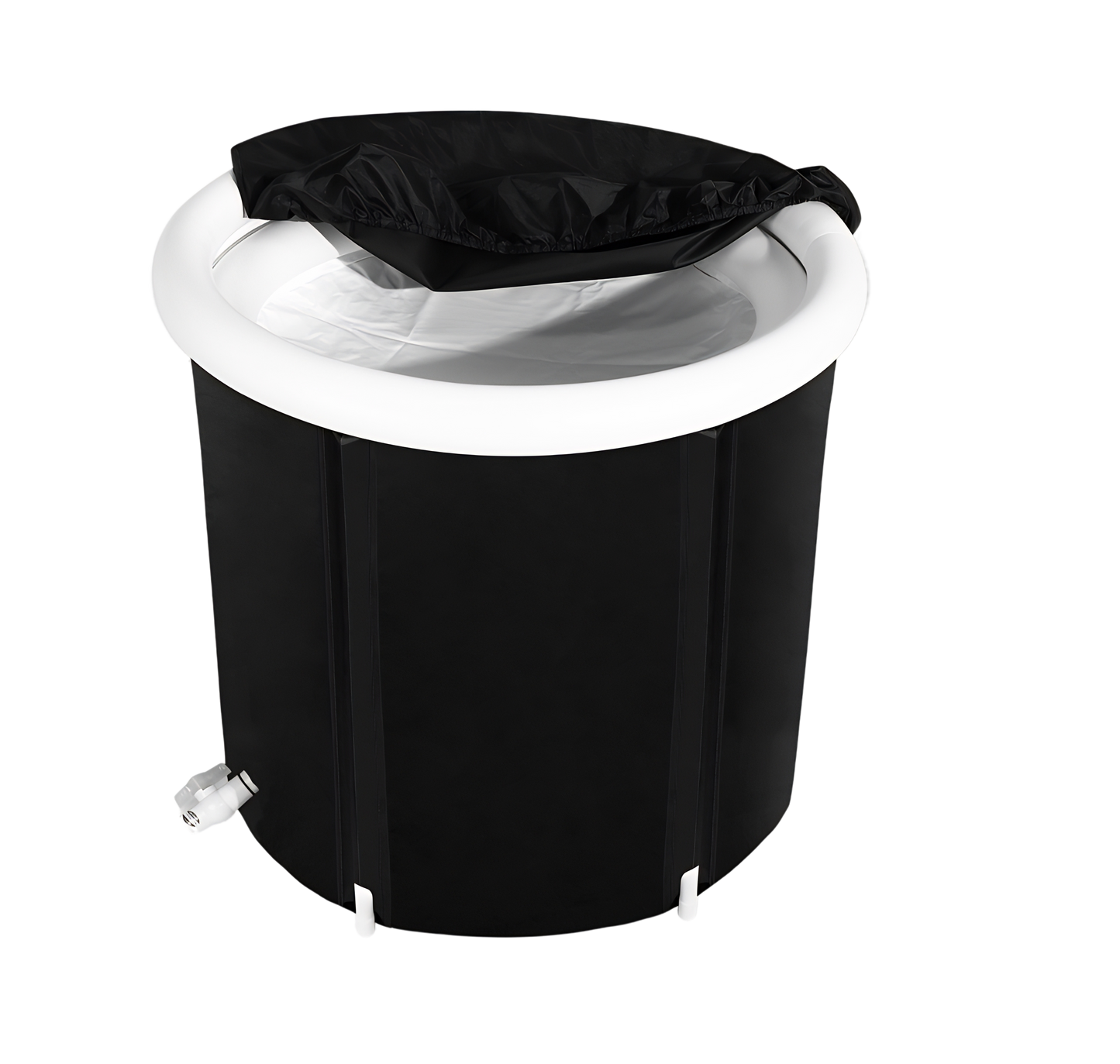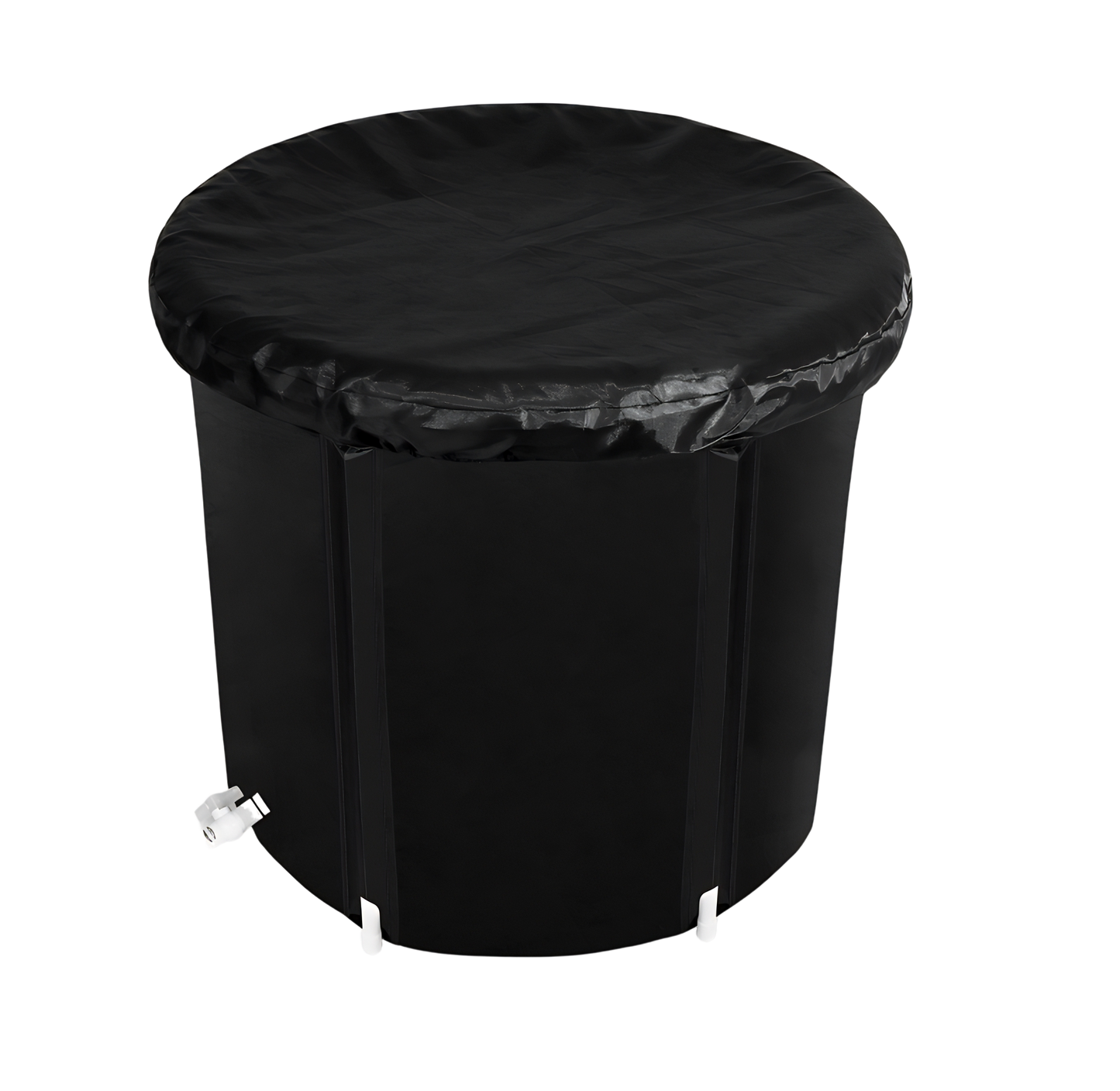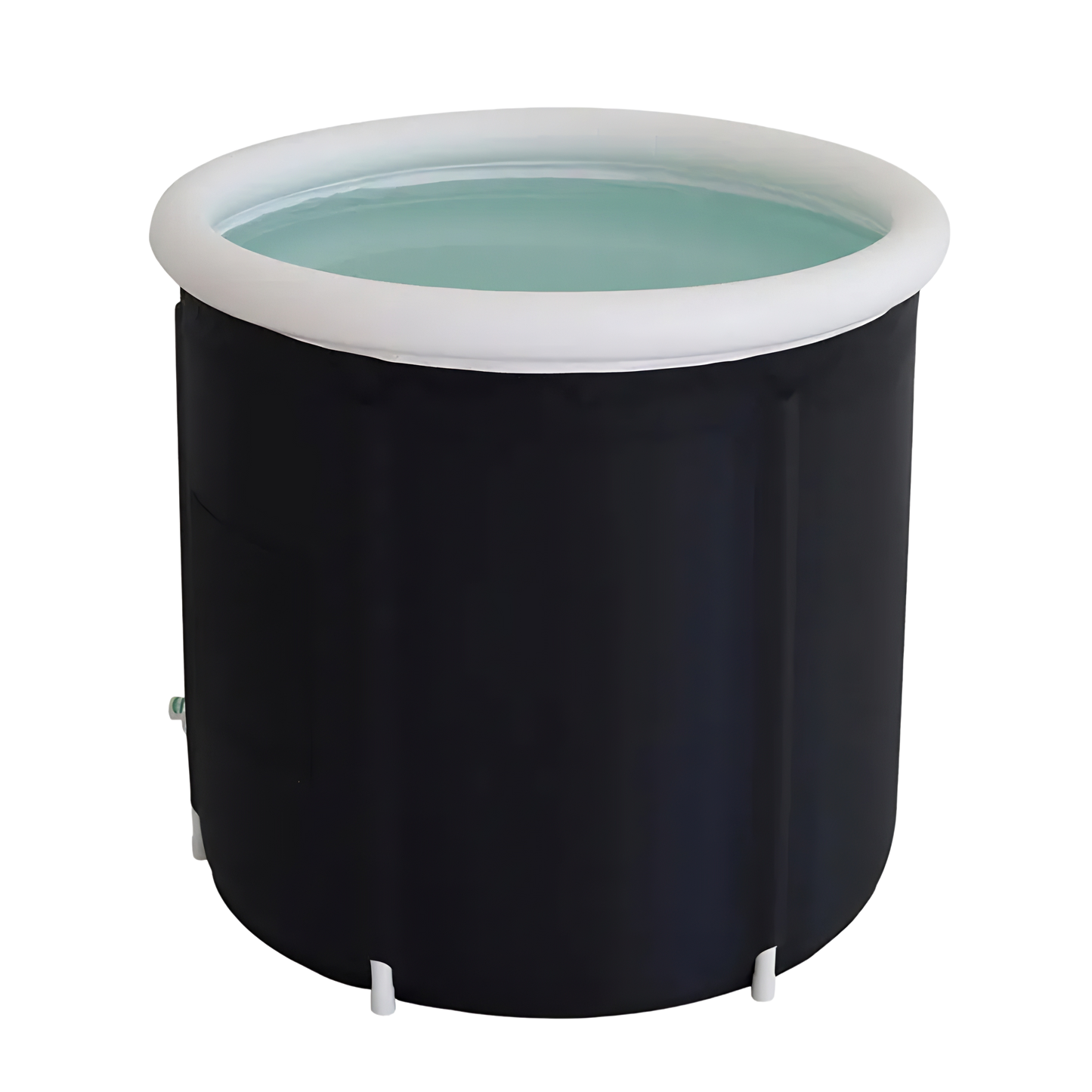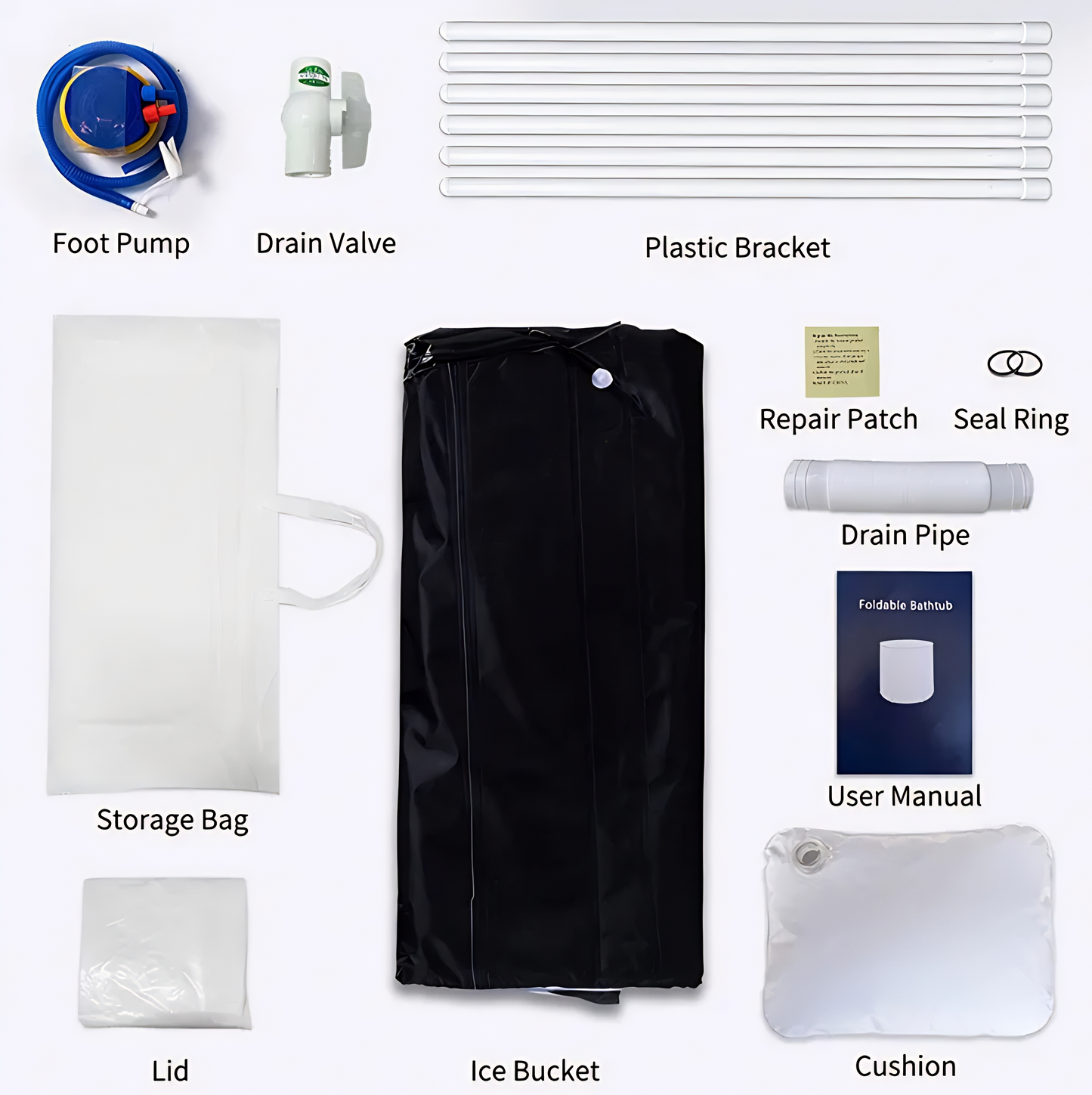ADHD (Attention-Deficit/Hyperactivity Disorder) is a neurodevelopmental disorder that affects millions of individuals worldwide. While traditional treatments such as medication and therapy are commonly prescribed, there is growing interest in exploring alternative approaches to managing ADHD symptoms. One such approach is the use of ice baths, also known as cold therapy.
Ice baths involve immersing the body in icy cold water for a brief period of time, typically anywhere from 2-10 minutes. Proponents of ice baths believe that the extreme cold temperature can have a positive impact on ADHD symptoms, including improved focus, attention, and regulation of impulsivity.
Key Takeaways:
- Ice baths, also known as cold therapy, are being explored as a potential complementary approach to managing ADHD symptoms.
- Some studies suggest that ice baths may help improve focus, attention, and regulation of impulsivity in individuals with ADHD.
- Further research is needed to fully understand the effectiveness of ice baths in ADHD management.
- Ice baths should not be used as a replacement for prescribed medications or evidence-based therapies.
- Individuals considering ice baths as part of their ADHD management should consult healthcare professionals for guidance.
The Mental Health Benefits of Ice Baths

Ice baths have gained attention as a potential therapy for various mental health conditions, including ADHD. Cold water immersion therapy, such as ice baths, has been shown to have a positive impact on mental well-being. Research indicates that regular exposure to cold water can help alleviate symptoms of depression and anxiety by reducing the levels of cortisol, commonly known as the stress hormone (Aussie Ice Baths, 2023). This decrease in cortisol can result in improved mood and overall mental state.
In addition to reducing stress and alleviating symptoms of depression and anxiety, ice baths also stimulate the release of endorphins. These natural painkillers not only promote relaxation but can also act as mood boosters. Ice baths have been found to improve focus, attention, and cognitive performance, which can be particularly beneficial for individuals with ADHD. The production of norepinephrine, a neurotransmitter responsible for regulating emotions and enhancing concentration, is believed to contribute to these cognitive improvements.
While ice baths offer potential mental health benefits, it is important to note that they should not be seen as a standalone treatment for mental health disorders. Professional treatment and therapy are crucial for managing conditions like ADHD. However, incorporating ice baths into a comprehensive treatment plan may provide supplementary support and contribute to overall well-being.
The Effects of Ice Baths on ADHD
Research on the effects of ice baths specifically on ADHD is still limited. While some studies indicate that cold water exposure can improve dopamine levels and potentially alleviate ADHD symptoms, further research is needed to fully understand these effects. It is essential to consult with healthcare professionals and follow evidence-based treatment plans when managing ADHD.
| Ice Baths and ADHD | Conclusion |
|---|---|
| Ice baths have shown potential in improving ADHD symptoms by increasing dopamine levels. | Further research is needed to fully understand the impact of ice baths on ADHD management. |
| Cold water therapy can promote relaxation and improve focus and attention. | Ice baths should not replace professional treatment for ADHD. |
| The release of endorphins during ice baths can act as natural mood boosters. | Ice baths can be incorporated into a comprehensive treatment plan for supplementary support. |
Building Stress Resilience with Ice Baths
Ice baths have emerged as a potential therapy for individuals with ADHD, offering not only short-term stress relief but also the opportunity to build resilience to stress in the long run. Cold water therapy has been shown to regulate the release of stress hormones, such as cortisol, leading to decreased stress levels. This adaptation to stress can be particularly beneficial for individuals with ADHD, as they may experience heightened sensitivity to attention fatigue. By exposing themselves to controlled stress through regular cold water therapy, individuals with ADHD may gradually develop the ability to react less intensely to stressors over time.
In addition to stress resilience, cold water exposure in ice baths has been found to increase tolerance to environmental stress and decrease oxidative stress levels. These effects can further contribute to improved stress management in individuals with ADHD. Cold therapy for ADHD symptoms presents an accessible and inexpensive approach to complement other ADHD management strategies. However, it is important to remember that ice baths should not be used as a replacement for prescribed medications or evidence-based therapies, but rather as an adjunctive therapy to support overall ADHD management.
To better understand the potential benefits of ice baths for individuals with ADHD, further research is needed. It is crucial to consult healthcare professionals and consider individualized treatment plans when exploring ice bath therapy for ADHD relief. By combining cold water therapy with other recommended treatments, individuals with ADHD can optimize their overall wellbeing and enhance their ability to manage symptoms effectively.
Table: Comparison of Ice Bath Therapy and Traditional ADHD Treatments
| Treatment Approach | Ice Bath Therapy | Traditional ADHD Treatments |
|---|---|---|
| Cost | Low-cost or free | May involve ongoing expenses |
| Accessibility | Can be done at home | May require professional intervention |
| Potential Side Effects | Minimal side effects | Possible side effects, depending on the treatment |
| Evidence | Preliminary studies show promise | Extensive research and clinical trials |
| Integration with Other Treatments | Complementary therapy | Core treatment |
The table above provides a concise comparison between ice bath therapy and traditional ADHD treatments. While ice baths offer advantages in terms of cost and accessibility, traditional treatments have the advantage of extensive research and clinical validation. It is important to weigh the options and discuss them with healthcare professionals to develop an individualized treatment plan that best suits the needs of individuals with ADHD.
Sadhguru on ADHD: The Power of Passion and Attention
In a thought-provoking video by Sadhguru, he delves deep into the realm of attention deficiency, commonly labeled as ADHD (Attention Deficit Hyperactivity Disorder). Contrary to popular belief, Sadhguru suggests that attention deficiency should not be viewed as a disorder. Instead, it's a unique characteristic that, when harnessed correctly, can be maximized for greater potential.
He shares a personal anecdote where a mere speck on a page engrossed him for hours. This experience challenges the widespread notion that individuals with ADHD lack focus. In reality, it's not about the inability to focus but rather where and how that focus is directed.
The crux of Sadhguru's message revolves around passion. He emphasizes that developing an intense passion for something meaningful can naturally enhance one's attention span. This passion-driven focus can be a game-changer for those who've struggled with attention deficiency in the past.
Furthermore, Sadhguru touches upon the fluidity of labels associated with attention deficiency. These labels, he suggests, are arbitrary and can shift throughout an individual's life. The key is not to get bogged down by these labels but to channel one's energy into areas of genuine interest.
Incorporating this perspective into the broader topic of ice baths and ADHD, one could postulate that the intense, invigorating experience of an ice bath might serve as a passion point for some. The sheer intensity of the cold could act as a focal point, helping those with ADHD channel their attention effectively. This, combined with the physiological benefits of cold immersion, might offer a unique approach to managing ADHD symptoms.
Conclusion
Ice baths have shown potential in managing ADHD symptoms, drawing inspiration from various sources, including insights from Sadhguru on the power of passion and attention. While he emphasizes the unique trait of attention deficiency and the transformative potential of directing focus, it's essential to view ice baths in a broader context. These cold water therapies, along with other natural treatments, can offer supplementary approaches to ADHD management that are accessible, cost-effective, and have minimal side effects.
However, it's crucial to consult healthcare professionals and develop individualized treatment plans for ADHD. Ice baths, though promising and backed by perspectives like Sadhguru's, should not be considered a substitute for prescribed medications or evidence-based therapies. Instead, they can serve as a complementary option, enhancing traditional treatments.
In conclusion, as we explore the multifaceted approaches to ADHD management, including the potential of ice baths and the wisdom of figures like Sadhguru, a holistic perspective emerges. With continued research and a combination of treatments, individuals with ADHD can find a comprehensive approach that addresses their unique needs.
FAQs
Do ice baths help with managing ADHD symptoms?
While some studies suggest that ice baths may have potential benefits for ADHD management, further research is needed to fully understand their effectiveness. Ice baths should not be used as a replacement for prescribed medications or evidence-based therapies. It is important to consult healthcare professionals and consider individualized treatment plans for ADHD.
What are the mental health benefits of ice baths?
Ice baths have been found to alleviate depression and anxiety by decreasing the stress hormone cortisol and improving mood. Regular cold water therapy can significantly improve symptoms of depression and reduce anxiety levels. Ice baths also release endorphins, promoting relaxation and reducing stress. Cold water exposure can improve brain function, including focus, attention, and cognitive performance.
Read More: Ice Bath and Mental Health Benefits.
Can ice baths help individuals build resilience to stress?
Yes, cold water therapy can help individuals build resilience to stress. It regulates the release of stress hormones, including cortisol, leading to decreased stress levels. The controlled stress of cold water exposure helps individuals adapt to react less to stressors over time. Cold water exposure also increases tolerance to environmental stress and decreases oxidative stress levels.
Read More: Ice Baths and Stress Reduction.
Should ice baths be used as a standalone treatment for ADHD?
No, ice baths should not be used as a standalone treatment for ADHD. While they may offer supplementary approaches to ADHD management, it is crucial to consult healthcare professionals and consider individualized treatment plans for ADHD. Ice baths should not replace prescribed medications or evidence-based therapies.

